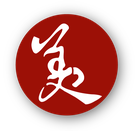The autoimmune disease Hashimoto’s thyroiditis affects far more women than men. So it is inevitable that those affected are seriously worried about this autoimmune disease with regard to pregnancy and the desire to have children.
Because in this context there is a lot more to consider than in healthy pregnant women.
Our thyroid gland is responsible for many processes in the human body. This also includes a balanced metabolism, which can also have an impact on fertility, not least in women.
This means that women who suffer from this chronic thyroid disease can often be difficult to conceive and can then lead to miscarriages.
In addition, the thyroid gland is responsible for producing enough hormones, which in turn provide the fetus with sufficient nutrients. But with Hashimoto’s thyroiditis, this hormone production is severely impaired.
The inflammation of the thyroid gland, which causes our immune system to mistakenly attack this organ and destroy it with antibodies, leads to over- or under-functions. So it seems comparable to an endless loop in which the women concerned feel like they are trapped.
Desire to have children and pregnancy do not have to remain unfulfilled
Certainly, conception and delivery of unborn life in the autoimmune disease Hashimoto’s thyroiditis are somewhat more difficult. But if the disease is diagnosed and properly treated, the desire to have children can still come true.
It is only important that medically controlled, hormonal therapy is tailored to the pregnancy and carried out. In addition, you can support this therapy wonderfully with the right nutrition.
Because a special diet can strengthen your immune system and keep your gut healthy. So you should in any case eat a very balanced diet. So make sure that your food contains iron, omega-3 fatty acids and phytochemicals.
Your doctor must decide individually whether you should continue to use the anti-inflammatory selenium during pregnancy.
However, close cooperation between your gynecologist and the endocrinologist is equally important. Because the intake of the thyroid hormone should be administered in coordination with the status of the sex hormones determined by the gynecologist.
You also have to assume that the dose of your daily thyroid hormones may need to be increased during pregnancy, because during this time many metabolic processes pick up speed.
This is a very natural process, but in your case it is one that should be kept under control.
NOTE: A Belgian study found that 4 out of 10 women who cannot get pregnant have undetected hypothyroidism.
What about the intake of iodine during pregnancy?
When pregnant, it is usually advisable to add a little more iodine because the embryo needs it for its healthy development. But you will already know for sure: Additional iodine can make the inflammation of the thyroid worse. So it’s like walking the tightrope.
Here, too, your doctors have to work closely together. Because your urine can be used to determine your iodine values and then the appropriate supply of iodine can be discussed and addressed individually.
This usually happens during the check-ups and by adjusting your thyroxine dose. It is important that this adjustment is made early.
So your doctor should take action as soon as you determine pregnancy, and not only if undersupply has already been demonstrated in the laboratory.
What dangers can arise for the unborn child?
- iodine deficiency: May cause irreversible brain damage in the child, but this would only be ascertainable after childbirth.
- Underactive thyroid due to thyroxine dose adjusted too late: May adversely affect or disrupt healthy development, especially the development of the child’s nervous system.
But the TPO antibodies don’t harm your unborn child. They are already deposited in the placenta, but do not reach the child’s thyroid.
In addition, the increased production of progesterone, the so-called pregnancy hormone, is responsible for the fact that your own complaints will decrease a little during this time.
What needs to be considered after the baby is born?
In contrast to the beginning of pregnancy, where the dose of your thyroxine preparation has been increased, the dose should now be reduced by 25 µg immediately after delivery.
For you, the period after childbirth can also result in the relapses of Hashimoto’s thyroiditis occurring again with the breakdown of pregnancy hormones. It is therefore important that you have the thyroid values checked at short intervals in the first half of the year.
How is breastfeeding the child compatible with Hashimoto’s thyroiditis?
Breastfeeding is essential for every woman to have children. Regardless of whether you can and want to breastfeed for a very long period of time or whether you give the baby the bottle after a few weeks: Every mother will breastfeed, at least at the beginning.
However, mothers with the autoimmune disease Hashimoto’s thyroiditis often wonder whether they should breastfeed at all.
You can give the all-clear here. Because only in the first milk are some thyroid antibodies in the first weeks. However, in such small quantities that they give the baby no Can cause damage.


Breastfeeding will also not cause the child to automatically suffer from the same autoimmune disease. In addition, there is the fact that hormones continue to be produced during breastfeeding, as it was in pregnancy.
This again requires an increased dose of thyroxine, which must also be reduced after weaning, but may lead to a reduced effect of the symptoms of Hashimoto’s thyroiditis during breastfeeding.
Desiring to have children with fathers with Hashimoto’s thyroiditis
Since the cause of the autoimmune disease is known to be found in genetic predispositions, men should also look with desire to have children get extensive advice from your doctor.
The endocrinologist can use blood values to determine, for example, whether the thyroid hormone is being administered in the required dose and which sex hormones are present.
In addition, the disease in men can of course also lead to the fact that his fertility may be disturbed. However, a possibly reduced libido can be compensated for or balanced by substituting the missing hormones.
Conclusion
Even with chronic inflammation of the thyroid gland, the desire to have children does not have to be put aside.
According to a study from 2014, it was shown that Hashimoto’s thyroiditis increased in 47% of the women examined infertility and may also lead to miscarriages, but if you talk to your gynecologist and endocrinologist beforehand, your hormonal therapy can be tailored and adapted so that it fertilizes and conveys the child.
However, you should definitely note that your diet should be adjusted to the changed needs. For example, iodine is essential in pregnancy, because your child needs it for good and healthy development.
However, the future father of your child should also be thoroughly examined if he suffers from the autoimmune disease.
Due to the fact that Hashimoto’s thyroiditis can of course also cause a certain deficit in sex hormones in men, it often happens that the generation does not work as desired. Testosterone is usually administered to compensate for this deficit.
With regular checks, adjusting the daily dose of thyroxine and a balanced diet, there is nothing standing in the way of your desire to have children and pregnancy, even with Hashimoto’s thyroiditis.
In any case, it is important that you seek advice from competent doctors and adhere strictly to their instructions.
RELATED ITEMS
-

Acupuncture if you want to have a child – pregnancy – practice
Acupuncture If you want to have children Pregnancy Basic information It is important that an individual basic diagnosis is carried out. This is the only way…
-

Having a child with HIV – pregnancy is not taboo, jameda
Posted by jameda on 04.04.2016 HIV infection does not prevent the desire to have children! (© Subbotina Anna – fotolia) HIV is still a stigma,…
-

Fertility of women: thus fulfilling the desire to have children!
How women can increase their fertility Menu and widgets About fertility Read also: Diet during pregnancy Finally pregnant!…
-

Nfp at fertility – interview with pd dr
How can NFP help with the desire to have children? To answer this question, we asked NFP expert and reproductive doctor Christian Gnoth. To…
